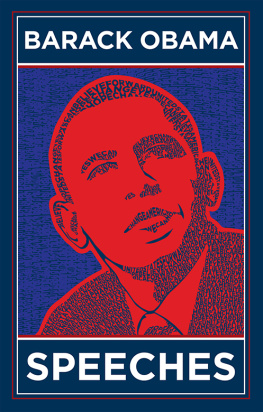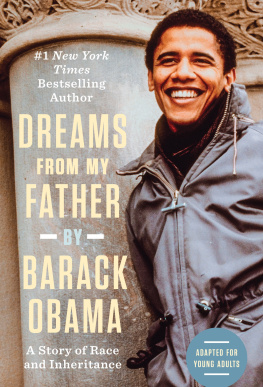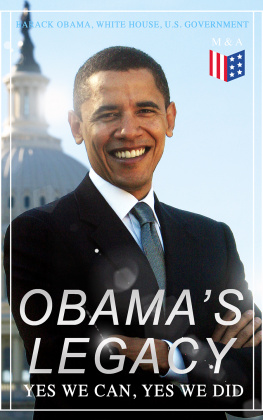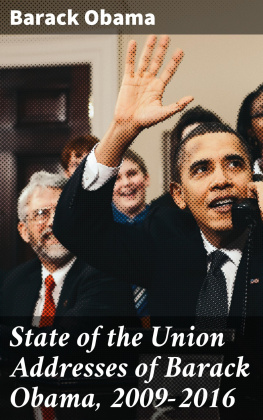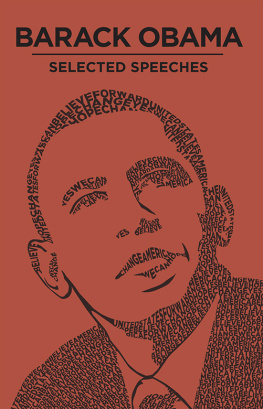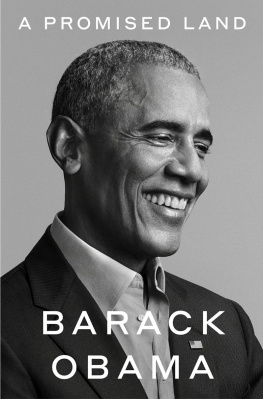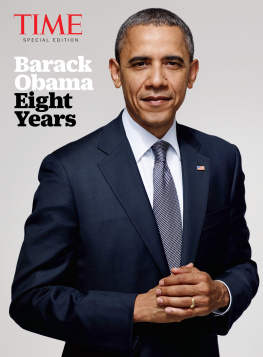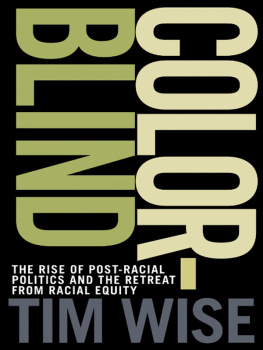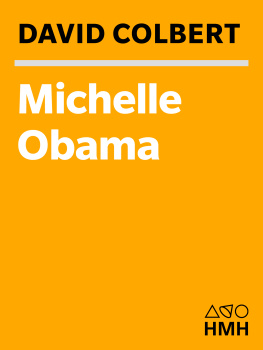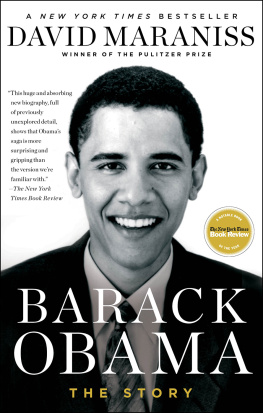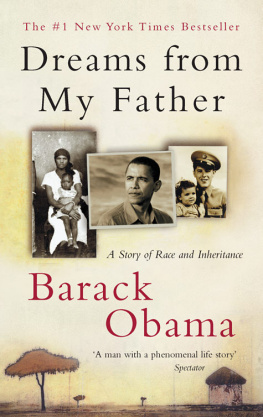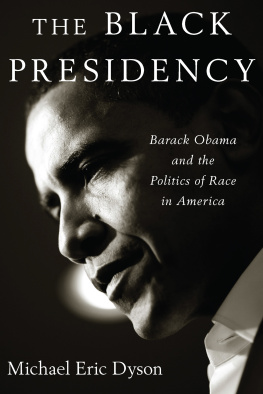Barack Obama - Dreams from My Father: A Story of Race and Inheritance
Here you can read online Barack Obama - Dreams from My Father: A Story of Race and Inheritance full text of the book (entire story) in english for free. Download pdf and epub, get meaning, cover and reviews about this ebook. year: 2007, publisher: Crown Publishers, genre: Home and family. Description of the work, (preface) as well as reviews are available. Best literature library LitArk.com created for fans of good reading and offers a wide selection of genres:
Romance novel
Science fiction
Adventure
Detective
Science
History
Home and family
Prose
Art
Politics
Computer
Non-fiction
Religion
Business
Children
Humor
Choose a favorite category and find really read worthwhile books. Enjoy immersion in the world of imagination, feel the emotions of the characters or learn something new for yourself, make an fascinating discovery.

- Book:Dreams from My Father: A Story of Race and Inheritance
- Author:
- Publisher:Crown Publishers
- Genre:
- Year:2007
- Rating:5 / 5
- Favourites:Add to favourites
- Your mark:
- 100
- 1
- 2
- 3
- 4
- 5
Dreams from My Father: A Story of Race and Inheritance: summary, description and annotation
We offer to read an annotation, description, summary or preface (depends on what the author of the book "Dreams from My Father: A Story of Race and Inheritance" wrote himself). If you haven't found the necessary information about the book — write in the comments, we will try to find it.
Dreams from My Father: A Story of Race and Inheritance — read online for free the complete book (whole text) full work
Below is the text of the book, divided by pages. System saving the place of the last page read, allows you to conveniently read the book "Dreams from My Father: A Story of Race and Inheritance" online for free, without having to search again every time where you left off. Put a bookmark, and you can go to the page where you finished reading at any time.
Font size:
Interval:
Bookmark:
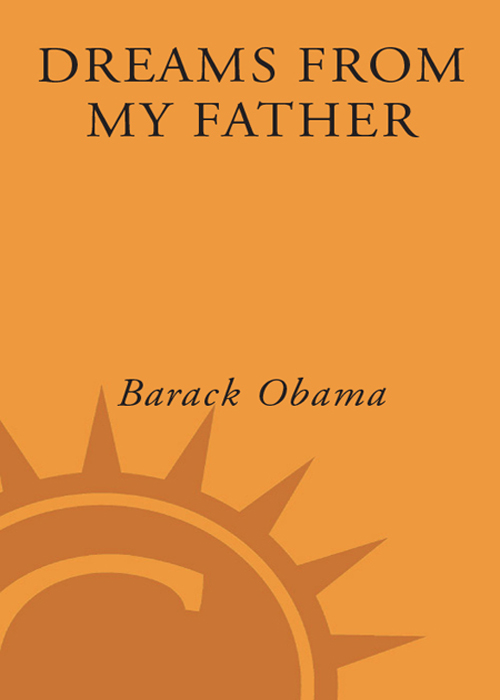
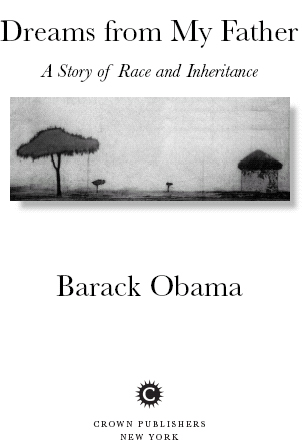
CONTENTS
PART ONE
ORIGINS
PART TWO
CHICAGO
PART THREE
KENYA
For we are strangers before them, and sojourners, as were all our fathers.
1 C HRONICLES 29:15
PREFACE TO THE2004 EDITION

A LMOST A DECADE HAS passed since this book was first published. As I mention in the original introduction, the opportunity to write the book came while I was in law school, the result of my election as the first African-American president of the Harvard Law Review. In the wake of some modest publicity, I received an advance from a publisher and went to work with the belief that the story of my family, and my efforts to understand that story, might speak in some way to the fissures of race that have characterized the American experience, as well as the fluid state of identitythe leaps through time, the collision of culturesthat mark our modern life.
Like most first-time authors, I was filled with hope and despair upon the books publicationhope that the book might succeed beyond my youthful dreams, despair that I had failed to say anything worth saying. The reality fell somewhere in between. The reviews were mildly favorable. People actually showed up at the readings my publisher arranged. The sales were underwhelming. And, after a few months, I went on with the business of my life, certain that my career as an author would be short-lived, but glad to have survived the process with my dignity more or less intact.
I had little time for reflection over the next ten years. I ran a voter registration project in the 1992 election cycle, began a civil rights practice, and started teaching constitutional law at the University of Chicago. My wife and I bought a house, were blessed with two gorgeous, healthy, and mischievous daughters, and struggled to pay the bills. When a seat in the state legislature opened up in 1996, some friends persuaded me to run for the office, and I won. I had been warned, before taking office, that state politics lacks the glamour of its Washington counterpart; one labors largely in obscurity, mostly on topics that mean a great deal to some but that the average man or woman on the street can safely ignore (the regulation of mobile homes, say, or the tax consequences of farm equipment depreciation). Nonetheless, I found the work satisfying, mostly because the scale of state politics allows for concrete resultsan expansion of health insurance for poor children, or a reform of laws that send innocent men to death rowwithin a meaningful time frame. And too, because within the capitol building of a big, industrial state, one sees every day the face of a nation in constant conversation: inner-city mothers and corn and bean farmers, immigrant day laborers alongside suburban investment bankersall jostling to be heard, all ready to tell their stories.
A few months ago, I won the Democratic nomination for a seat as the U.S. senator from Illinois. It was a difficult race, in a crowded field of well-funded, skilled, and prominent candidates; without organizational backing or personal wealth, a black man with a funny name, I was considered a long shot. And so, when I won a majority of the votes in the Democratic primary, winning in white areas as well as black, in the suburbs as well as Chicago, the reaction that followed echoed the response to my election to the Law Review. Mainstream commentators expressed surprise and genuine hope that my victory signaled a broader change in our racial politics. Within the black community, there was a sense of pride regarding my accomplishment, a pride mingled with frustration that fifty years after Brown v. Board of Education and forty years after the passage of the Voting Rights Act, we should still be celebrating the possibility (and only the possibility, for I have a tough general election coming up) that I might be the sole African Americanand only the third since Reconstructionto serve in the Senate. My family, friends, and I were mildly bewildered by the attention, and constantly aware of the gulf between the hard sheen of media reports and the messy, mundane realities of life as it is truly lived.
Just as that spate of publicity prompted my publishers interest a decade ago, so has this fresh round of news clippings encouraged the books re-publication. For the first time in many years, Ive pulled out a copy and read a few chapters to see how much my voice may have changed over time. I confess to wincing every so often at a poorly chosen word, a mangled sentence, an expression of emotion that seems indulgent or overly practiced. I have the urge to cut the book by fifty pages or so, possessed as I am with a keener appreciation for brevity. I cannot honestly say, however, that the voice in this book is not minethat I would tell the story much differently today than I did ten years ago, even if certain passages have proven to be inconvenient politically, the grist for pundit commentary and opposition research.
What has changed, of course, dramatically, decisively, is the context in which the book might now be read. I began writing against a backdrop of Silicon Valley and a booming stock market; the collapse of the Berlin Wall; Mandelain slow, sturdy stepsemerging from prison to lead a country; the signing of peace accords in Oslo. Domestically, our cultural debatesaround guns and abortion and rap lyricsseemed so fierce precisely because Bill Clintons Third Way, a scaled-back welfare state without grand ambition but without sharp edges, seemed to describe a broad, underlying consensus on bread-and-butter issues, a consensus to which even George W. Bushs first campaign, with its compassionate conservatism, would have to give a nod. Internationally, writers announced the end of history, the ascendance of free markets and liberal democracy, the replacement of old hatreds and wars between nations with virtual communities and battles for market share.
And then, on September 11, 2001, the world fractured.
Its beyond my skill as a writer to capture that day, and the days that would followthe planes, like specters, vanishing into steel and glass; the slow-motion cascade of the towers crumbling into themselves; the ash-covered figures wandering the streets; the anguish and the fear. Nor do I pretend to understand the stark nihilism that drove the terrorists that day and that drives their brethren still. My powers of empathy, my ability to reach into anothers heart, cannot penetrate the blank stares of those who would murder innocents with abstract, serene satisfaction.
What I do know is that history returned that day with a vengeance; that, in fact, as Faulkner reminds us, the past is never dead and buriedit isnt even past. This collective history, this past, directly touches my own. Not merely because the bombs of Al Qaeda have marked, with an eerie precision, some of the landscapes of my lifethe buildings and roads and faces of Nairobi, Bali, Manhattan; not merely because, as a consequence of 9/11, my name is an irresistible target of mocking websites from overzealous Republican operatives. But also because the underlying strugglebetween worlds of plenty and worlds of want; between the modern and the ancient; between those who embrace our teeming, colliding, irksome diversity, while still insisting on a set of values that binds us together, and those who would seek, under whatever flag or slogan or sacred text, a certainty and simplification that justifies cruelty toward those not like usis the struggle set forth, on a miniature scale, in this book.
Font size:
Interval:
Bookmark:
Similar books «Dreams from My Father: A Story of Race and Inheritance»
Look at similar books to Dreams from My Father: A Story of Race and Inheritance. We have selected literature similar in name and meaning in the hope of providing readers with more options to find new, interesting, not yet read works.
Discussion, reviews of the book Dreams from My Father: A Story of Race and Inheritance and just readers' own opinions. Leave your comments, write what you think about the work, its meaning or the main characters. Specify what exactly you liked and what you didn't like, and why you think so.

